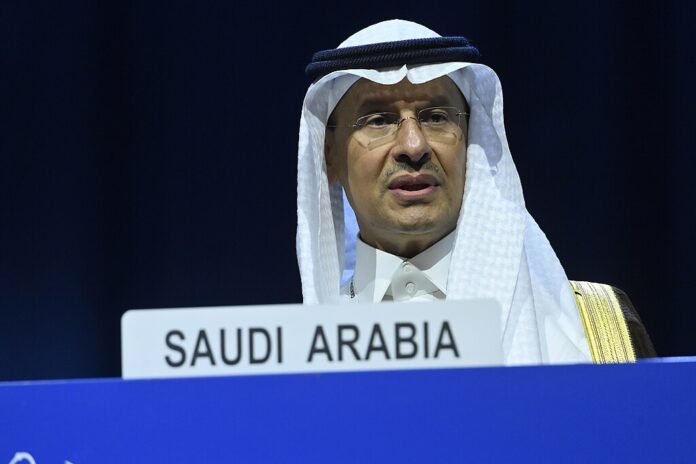The first-ever Saudi Arabia-Philippines energy partnership spans multiple sectors, driving sustainability and renewable energy goals
Saudi Arabia and the Philippines have entered a new phase of collaboration, marking a milestone in their bilateral relations with the signing of their first-ever energy cooperation agreement. The memorandum of understanding (MoU), signed on 14th October 2024 in Riyadh, was formalised by Saudi Energy Minister Prince Abdulaziz bin Salman and Philippine Energy Secretary Raphael Lotilla. This agreement lays the groundwork for extensive collaboration across a variety of energy sectors, including petroleum, natural gas, renewable energy, and energy efficiency.
The deal is a significant step forward for both countries, particularly as Saudi Arabia continues its drive towards sustainability under Vision 2030, which seeks to have 50% of the Kingdom’s energy generated from renewable sources by the end of the decade. The Philippines, while at a different stage of its energy transition, looks to benefit from Saudi Arabia’s leadership and expertise in both fossil fuels and renewable technologies.
In an interview, Lotilla emphasised the importance of this partnership, noting that this is the first time such an agreement has been signed between the two governments. “The MoU covers many areas, in fact, the entire scope of the energy transition,” he explained. While Saudi Arabia targets a 50% renewable energy goal by 2030, the Philippines aims to reach the same benchmark by 2040, giving the nation room to learn and adapt from Saudi Arabia’s experiences.
Embed from Getty ImagesLotilla also acknowledged the progressive outlook of Saudi Arabia, which, despite being a leading producer of fossil fuels, has a forward-looking approach to energy transition. “Our president has always been impressed by how Saudi Arabia, despite its position as a leader in fossil fuel production, has committed itself to a future that benefits not just itself, but the entire planet,” he said.
The agreement between the two nations goes beyond traditional energy sources, opening up opportunities in climate solutions and cutting-edge technologies. One of the key areas of cooperation is energy efficiency, a critical concern for both nations, as they both experience extreme temperatures that place significant strain on their power grids. Last year, for instance, El Niño caused a 14% spike in electricity demand in the Philippines, illustrating the urgent need for more efficient cooling systems and sustainable energy practices.
Lotilla pointed to Saudi Arabia’s advancements in energy efficiency as a model for the Philippines, particularly in cooling technology and climate change mitigation efforts. The MoU also aligns with Saudi Arabia’s Circular Carbon Economy framework, which focuses on reducing harmful emissions through innovative technologies for carbon capture, reuse, and storage.
“Energy storage is another critical area we aim to explore with Saudi Arabia,” Lotilla said. The Philippines, which is still exploring its indigenous natural gas resources, views carbon capture and storage as key to developing these resources sustainably. The collaboration promises to foster innovation in these areas, with Saudi Arabia’s experience in oil and gas exploration serving as a valuable resource, especially as the Philippines investigates renewable hydrogen projects.
In addition to natural gas and hydrogen, the potential for biofuels offers exciting opportunities for both nations. Saudi Arabia’s advanced refining capabilities could complement the Philippines’ vast agricultural resources, particularly in the production of sustainable aviation fuel. The Philippines is one of the world’s largest coconut producers, with 15 million metric tonnes produced annually, second only to Indonesia. According to Lotilla, there is strong potential for creating biofuels from nonstandard coconuts, alongside other agricultural products like banana biomass, which the government is also considering for fuel production.
Beyond energy cooperation, this partnership builds on already strong ties between Saudi Arabia and the Philippines. Saudi Arabia is home to around 800,000 Filipinos, and bilateral trade between the two nations exceeds $400 million annually. By forging this energy alliance, the two nations aim to strengthen these bonds and expand their cooperation into new sectors, fostering innovation and sustainability in line with global energy transition goals.
Lotilla expressed optimism about the future, remarking on the demographic potential of the Philippines, which he described as being in a “demographic sweet spot.” With a young, growing workforce, the Philippines is well-positioned to become a trillion-dollar economy by 2030, joining the ranks of regional economic powerhouses like Indonesia.
As the Philippines looks to the future, this energy cooperation with Saudi Arabia marks a pivotal moment in its journey towards sustainability and economic growth. Both nations stand to benefit immensely from this agreement, which not only strengthens their bilateral relations but also sets the stage for groundbreaking developments in renewable energy, carbon capture, and biofuels.
